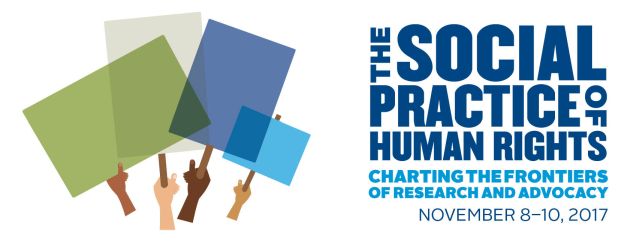
Start Date
11-10-2017 8:30 AM
Keywords
Civil society, faith-based organizations, conflict, human rights, Nigeria
Abstract
Nigeria has witnessed various forms of human rights violations such as extrajudicial killings, rape, and torture during both military and civilian regimes. Amnesty International, the U.S. State Department, and the Political Terror Scale of the Centre for Systemic Peace indicate that Nigeria is a country characterized by generalized human rights violations.
Over the years, several scholars have examined the causes, nature, responses of the state, and reasons for the persistence of human rights violations in Nigeria. A careful consideration of these studies indicates that the role of faith-based civil society organizations in the protection of victims of human rights abuses has not been holistically examined. Consequently, this study seeks to answer the following questions:
What are the views of faith-based civil society organizations in Nigeria on human rights and the protection of victims of human rights violations?
Do religious extremism and violent activities create a disposition of indifference on the responses of faith-based civil society organizations to the protection of victims of human rights violations in conflict-affected areas of Nigeria?
What strategies do faith-based civil society organizations in Nigeria use in the protection of victims of human rights abuses in conflict-affected areas of Nigeria?
These questions were answered with the aid of primary data collected through observation, key informant interviews, and focus group discussions with participants from faith-based organizations such as Christian Association of Nigeria (CAN) and Interfaith Mediation Centre. Secondary data were also sourced from magazines, newspaper reports, and websites.
The study shows that faith-based civil society organizations in Nigeria view the protection of victims of human rights violations in conflict-affected areas of Nigeria as an activity that should be carried out without religious bias. Additionally, religious extremism and violent activities have not created a disposition of indifference on the responses of faith-based civil society organizations to the protection of victims of human rights violations in conflict-affected areas of Nigeria.
Included in
Peace and Conflict Studies Commons, Political Science Commons, Social Welfare Commons, Social Work Commons
Faith-Based Civil Society Organizations and the Protection of Victims of Human Rights Abuses in Nigeria
Nigeria has witnessed various forms of human rights violations such as extrajudicial killings, rape, and torture during both military and civilian regimes. Amnesty International, the U.S. State Department, and the Political Terror Scale of the Centre for Systemic Peace indicate that Nigeria is a country characterized by generalized human rights violations.
Over the years, several scholars have examined the causes, nature, responses of the state, and reasons for the persistence of human rights violations in Nigeria. A careful consideration of these studies indicates that the role of faith-based civil society organizations in the protection of victims of human rights abuses has not been holistically examined. Consequently, this study seeks to answer the following questions:
What are the views of faith-based civil society organizations in Nigeria on human rights and the protection of victims of human rights violations?
Do religious extremism and violent activities create a disposition of indifference on the responses of faith-based civil society organizations to the protection of victims of human rights violations in conflict-affected areas of Nigeria?
What strategies do faith-based civil society organizations in Nigeria use in the protection of victims of human rights abuses in conflict-affected areas of Nigeria?
These questions were answered with the aid of primary data collected through observation, key informant interviews, and focus group discussions with participants from faith-based organizations such as Christian Association of Nigeria (CAN) and Interfaith Mediation Centre. Secondary data were also sourced from magazines, newspaper reports, and websites.
The study shows that faith-based civil society organizations in Nigeria view the protection of victims of human rights violations in conflict-affected areas of Nigeria as an activity that should be carried out without religious bias. Additionally, religious extremism and violent activities have not created a disposition of indifference on the responses of faith-based civil society organizations to the protection of victims of human rights violations in conflict-affected areas of Nigeria.


